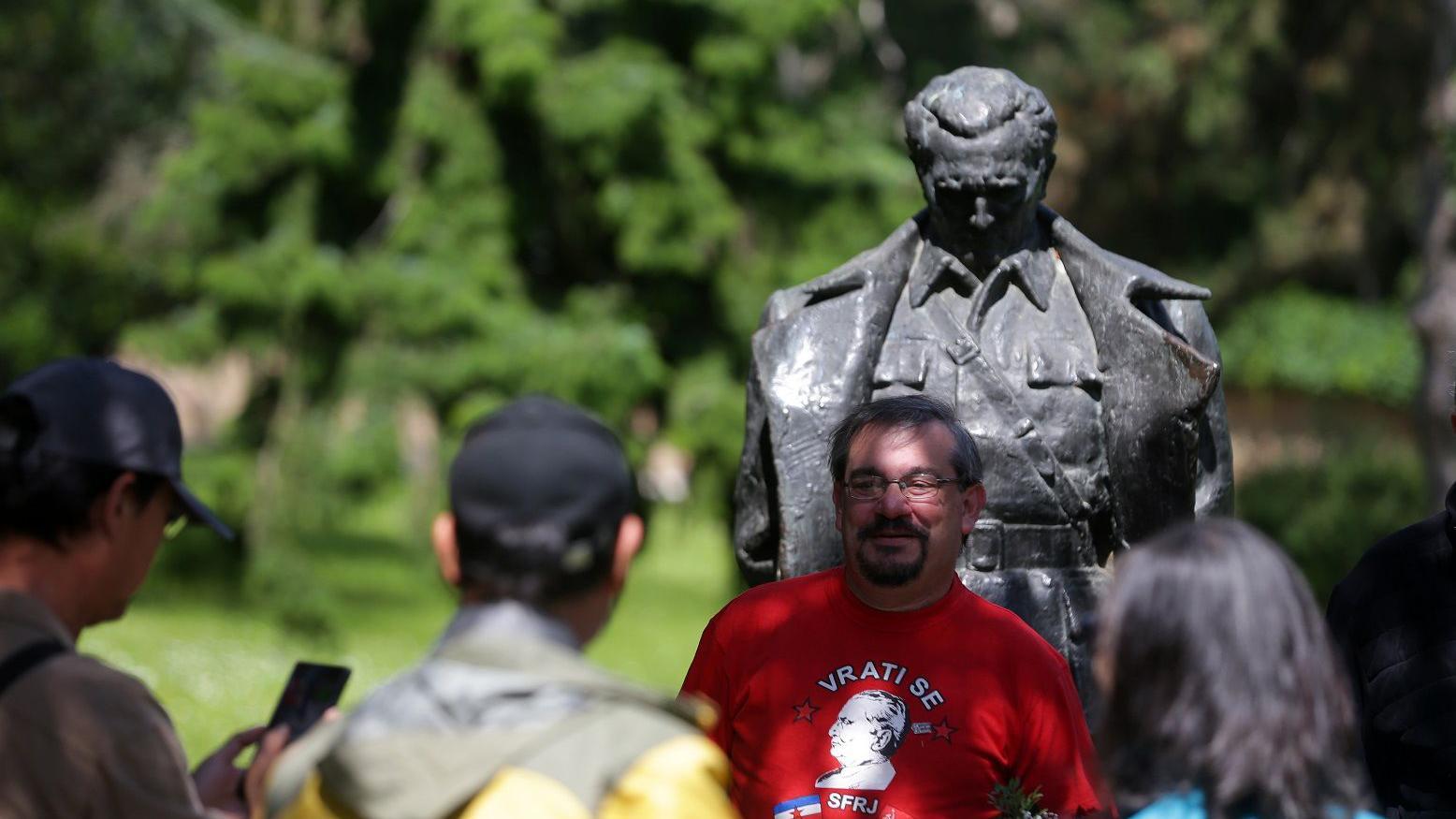Column | A filtered worldview
:format(jpeg):fill(f8f8f8,true)/s3/static.nrc.nl/bvhw/wp-content/blogs.dir/114/files/2019/01/vos-marjoleine-de-online-homepage.png)
In the sympathetic series ‘About Life’, Coen Verbraak speaks with all kinds of people, about how their lives went after something radical. I listened to a few old episodes, always nice when you are cooking, and heard Jolande Withuis talk about her communist youth and how, unlike her classmates, she managed to tell everything about the siege of Leningrad and the Battle of Stalingrad, but hardly heard of D-Day. It wasn’t about that at home.
« When did you find out that you had such a filtered worldview? » Asked Verbraak. Logical question, every strict believer, and Withuis described the communist environment in which she grew up no different than, for example, children from Orthodox Protestant families do that, simply has a worldview sent and filtered by faith in a truth.
Anyone who does not live in such a world is soon convinced that he himself has a much broader look, more unfiltered. We are lucky with that.
In the fascinating interview that Michel Kerres and Steven Derix had with the former chief of the British intelligence service Alex Younger, he said: “We will have to acknowledge that Russia fears for his safety and we will have to listen to that if we want to come to a long -term solution.
That is an educational mix of strength and openness. It is very common to find that Russia does not feel unsafe (‘nonsense!’), Even though we know that it makes little sense to approach such feelings with more or less rational arguments from our own worldview. There are simply emotions, historical growths, fears and beliefs that do not care about ‘yes, but that is not lógic’.
The realization that you do not always come with your own logic and your own vision (which, that is your own vision for that, the truth is pretty close) does not always help to look really unfiltered and spacious at the world. Spies (that is what Younger called himself) should be able to do that.
We of course too. It is strange that we heard a lot at school about D-Day and Normandy and the Americans and the Canadians, but not that Stalingrad was a turning point in that war thanks to enormous Russian efforts and just as huge losses. That was not what it was about. After all, they had become the enemy during the Cold War.
In the tiny, it is already difficult to like people with other beliefs or people who have done something wrong. A good friend recently said: « I intended not to lose anyone anymore. » That means no more or less nearby friends neglecting or no longer see from annoyance, or to argue that is not settled. In short, not having your view of them filtered by an opinion that you keep for the truth.
You often use your opinion as a justification for your behavior, then you are nicely rid of all kinds of obligations, including those to maintaining a friendship, if you at least want to see that as an obligation. Then you have a value again with the power of truth that you want to believe in, though truths do not have to be believed, you just have to see it. By an unfiltered look …
Without filters, without values, it is simply not possible, we cannot perceive a world like it is without our gaze. But it’s good to try that regularly. Just drop the glasses and see that a lot of blurry is.

/s3/static.nrc.nl/images/gn4/stripped/data133208054-975c80.jpg|https://images.nrc.nl/GHKHgLEB0W5fVUOPtg2NZvMgjzk=/1920x/filters:no_upscale()/s3/static.nrc.nl/images/gn4/stripped/data133208054-975c80.jpg|https://images.nrc.nl/pxkuHkDnn5uSdAlgcVDOTWOI5sg=/5760x/filters:no_upscale()/s3/static.nrc.nl/images/gn4/stripped/data133208054-975c80.jpg)
/s3/static.nrc.nl/images/gn4/stripped/data133212218-7ad0db.jpg|https://images.nrc.nl/-msrAYmFdrxp4hBrfCOV3V2HjMg=/1920x/filters:no_upscale()/s3/static.nrc.nl/images/gn4/stripped/data133212218-7ad0db.jpg|https://images.nrc.nl/hBntfAxxv2uN5JjCpKrfLwMwJBY=/5760x/filters:no_upscale()/s3/static.nrc.nl/images/gn4/stripped/data133212218-7ad0db.jpg)
/s3/static.nrc.nl/images/gn4/stripped/data132599981-a70496.jpg|https://images.nrc.nl/Qr6NaGgwaOaca9kLGrWpmQpYUik=/1920x/filters:no_upscale()/s3/static.nrc.nl/images/gn4/stripped/data132599981-a70496.jpg|https://images.nrc.nl/X_INdJWK_ensES1zCNibzOTfYg8=/5760x/filters:no_upscale()/s3/static.nrc.nl/images/gn4/stripped/data132599981-a70496.jpg)



